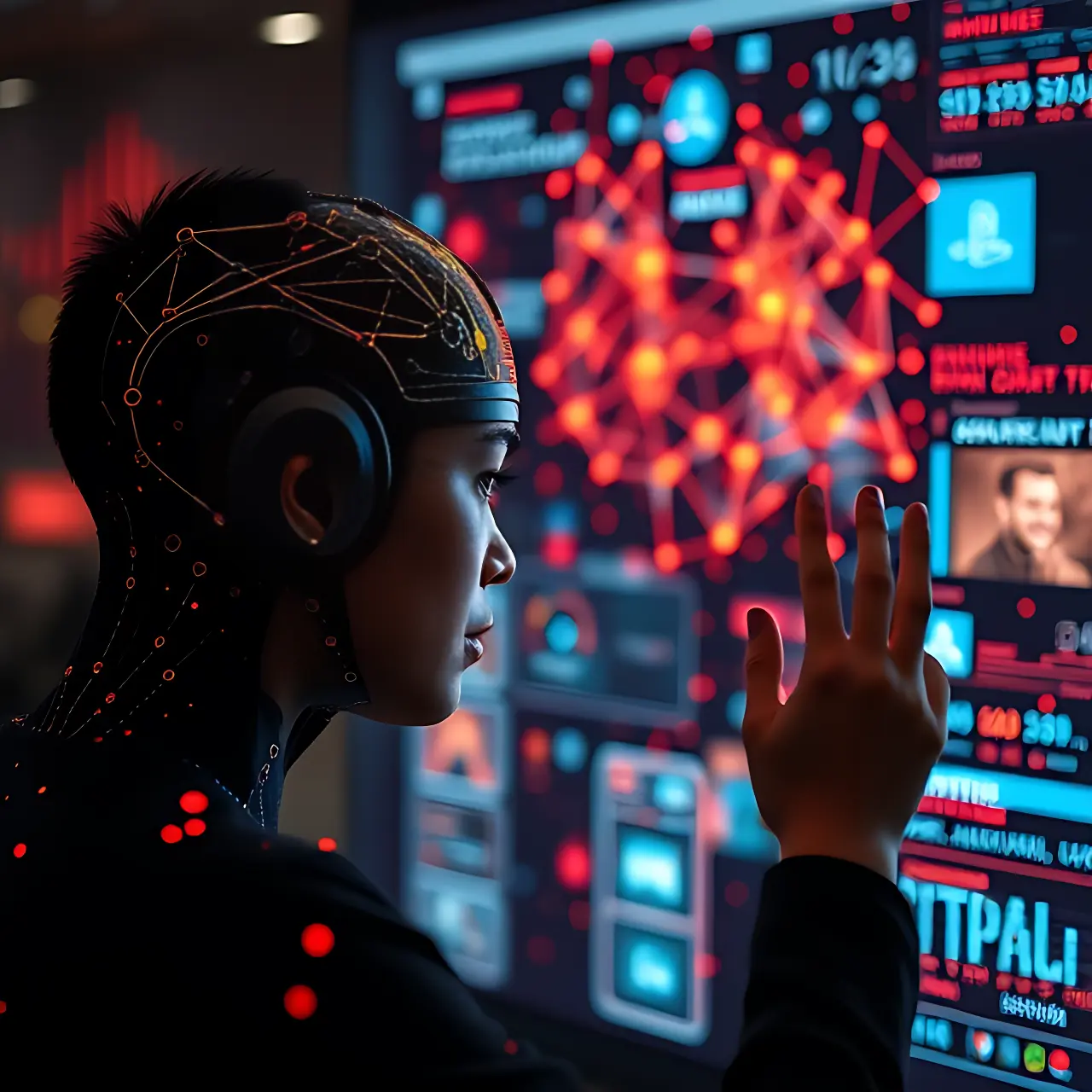Post: Is the Gen AI Bubble Going to Burst? Analyzing the Future of Generative AI

In 2023, we witnessed an incredible surge in the popularity and development of Generative AI (Gen AI), with technologies like GPT-4, DALL·E 2, and MidJourney revolutionizing the way we think about content creation, design, and automation. These advancements have caused a gold rush of investment, innovation, and experimentation in AI-driven industries. But, as the Gen AI hype continues to grow, an important question arises: Is the Gen AI bubble going to burst?
In this blog, we’ll dive into the current state of the generative AI industry, the potential risks and challenges it faces, and whether the excitement surrounding AI might be too good to last. Let’s explore the future of this transformative technology.
The Meteoric Rise of Generative AI
Generative AI refers to algorithms and models capable of creating content—be it text, images, audio, or video—based on existing data. The most well-known example is OpenAI’s GPT (Generative Pretrained Transformer), which can generate human-like text, from blog posts to code. Meanwhile, image-based models like DALL·E can generate stunning, original visuals from text prompts. These innovations have inspired companies across various industries to invest in AI tools for enhancing productivity, creativity, and user experiences.
In 2023, venture capitalists poured billions into AI startups, and the buzz around tools like ChatGPT, Jasper, and Canva’s AI-powered design features only fueled the growing frenzy. The question remains: is this meteoric rise sustainable, or are we in the midst of a classic tech bubble?
The Risks of a Gen AI Bubble
- Overvaluation and Speculative Investments:
As is often the case with rapidly emerging technologies, the rush of investments into generative AI companies has led to inflated valuations. Companies that promise revolutionary AI capabilities may not have the infrastructure, expertise, or scalability needed to deliver long-term success. When expectations outpace reality, the market could face a significant correction. - Unclear Business Models:
While Gen AI has demonstrated impressive capabilities, monetizing these innovations remains challenging for many startups. A significant portion of AI companies rely heavily on venture capital to stay afloat, and if the hype fades or market conditions shift, these companies could struggle to generate sustainable revenue. - Ethical and Regulatory Concerns:
Generative AI raises ethical concerns regarding content ownership, bias, misinformation, and intellectual property rights. Regulators worldwide are beginning to catch up with the rapid growth of AI, but the complexity of governing AI technologies might lead to uncertainties that could slow down industry growth or result in costly legal battles. - Overreliance on Big Tech:
A few dominant players—like OpenAI, Google, and Microsoft—hold a large share of the Gen AI market. If smaller startups cannot differentiate themselves or compete with the resources and infrastructure of these giants, we might see a consolidation of power within a few key companies, leading to a slowdown in innovation.
The Case for Generative AI's Longevity
Despite the risks, there are several reasons to believe that Generative AI is not just a passing trend but rather a lasting transformation of multiple industries.
- AI’s Practical Applications are Expanding:
Gen AI is already being used in a wide range of industries—from marketing and entertainment to healthcare and finance. The ability to automate mundane tasks, enhance creativity, and generate personalized content on demand makes it a valuable tool in both consumer-facing and enterprise-level applications. As these use cases grow, the technology could evolve into an indispensable business tool. - Impressive Technological Advancements:
The rate of advancement in AI technology is mind-boggling. Each iteration of AI models becomes smarter, more intuitive, and more capable of handling complex tasks. The ability of GPT-4 to generate more nuanced, context-aware responses compared to its predecessors shows that the tech has the potential to keep improving. - Growing Investment in AI Research:
Despite market volatility, there is no shortage of investment in AI research. Large corporations and governments are pouring resources into developing more advanced and ethical AI technologies. Whether it's through open-source collaborations or proprietary systems, Gen AI’s development will continue to push forward, contributing to its eventual integration into everyday life. - Consumer Adoption and Demand:
Consumers are increasingly integrating AI tools into their daily routines. From generating blog posts and social media content to enhancing video production and web design, the demand for AI-driven solutions is skyrocketing. This consumer adoption signals that there is real, long-term value in these technologies, beyond just hype.
Will the Gen AI Bubble Burst?
While it’s impossible to predict the future with certainty, there are a few indicators to watch for. A potential “burst” could occur if the market overcorrects due to unrealistic expectations, or if generative AI companies fail to create sustainable, profitable business models. However, even if some companies fail or valuations drop, it’s unlikely that the technology itself will fade into obscurity.
Instead, we may see a recalibration of expectations and a shift toward more realistic, measured growth. Similar to past tech booms, the hype will likely settle, but the most resilient, innovative AI companies will emerge stronger. It’s a maturation process that could lead to the long-term, widespread adoption of generative AI in society.
Conclusion: The Future of Generative AI
Is the Gen AI bubble going to burst? It’s too early to say definitively, but the underlying technology of generative AI is poised to play a significant role in shaping the future of work, creativity, and human-computer interaction. While the market may experience ups and downs, the demand for AI-driven solutions shows no sign of slowing down.
Rather than focusing on short-term market fluctuations, businesses and investors should look at the broader, long-term potential of Gen AI. With the right development and governance, generative AI could become as integrated into our lives as smartphones or the internet itself.


